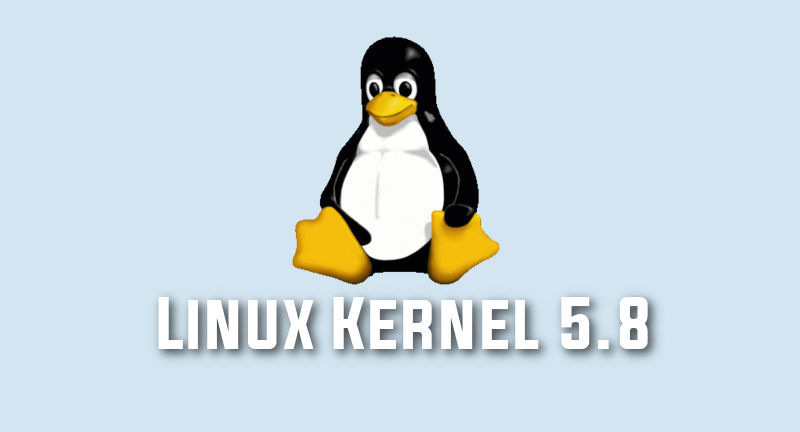 Linus Torvalds heeft versie 5.8 van de Linux Kernel vrijgegeven. De kernel is het hart van het besturingssysteem en zit, simpel gezegd, als laag tussen de hardware en de applicaties in. Nieuw in versie 5.8 is onder meer een energy driver voor de Zen en Zen 2 cpu's van AMD, ondersteuning voor Thunderbolt en de igp uit de Intel Tiger Lake cpu's en Trusted Memory Zones in AMD gpu's, wat het aanspreken van versleuteld videogeheugen mogelijk maakt. Meer informatie over de verbeteringen in deze release is te vinden bij Phoronix. Hieronder is een overzicht van de belangrijkste verbeteringen in Linux Kernel 5.8:
Linus Torvalds heeft versie 5.8 van de Linux Kernel vrijgegeven. De kernel is het hart van het besturingssysteem en zit, simpel gezegd, als laag tussen de hardware en de applicaties in. Nieuw in versie 5.8 is onder meer een energy driver voor de Zen en Zen 2 cpu's van AMD, ondersteuning voor Thunderbolt en de igp uit de Intel Tiger Lake cpu's en Trusted Memory Zones in AMD gpu's, wat het aanspreken van versleuteld videogeheugen mogelijk maakt. Meer informatie over de verbeteringen in deze release is te vinden bij Phoronix. Hieronder is een overzicht van de belangrijkste verbeteringen in Linux Kernel 5.8:
Graphics:Processors:
- Qualcomm Adreno 405 / 640 / 650 open-source support.
- AMDGPU TMZ support with Trusted Memory Zones for encrypted video memory.
- Intel Tiger Lake SAGV support and other Gen12 graphics updates.
- Radeon Navi/GFX10 soft recovery support.
- The Radeon driver also now better handles critical thermal faults.
- P2P buffer/DMA support between GPUs.
- Other updates too like Lima run-time power management, Nouveau support for NVIDIA format modifiers, and more.
Storage / File-Systems:
- The AMD Energy Driver was merged for (finally!!!) exposing the Zen/Zen2 energy sensors on Linux.
- AMD Ryzen 4000 Renoir temperature and EDAC support.
- Nested AMD live migration with KVM is now supported.
- Loongson 3 CPU support for KVM virtualization.
- Spectre mitigation fixes also being back-ported now to the stable series.
- Boost support for the CPPC CPUFreq driver.
- PCIe NTB support for Ice Lake Xeon servers.
- RISC-V Kendryte K210 SoC support has been wrapped up.
- New Arm SoC and platform support.
- Initial support for booting POWER10 processors.
- AMD Zen/Zen2 RAPL support for run-time average power limiting.
- Intel TPAUSE power-optimized delays support for Tremont cores and newer.
- Tightened Arm 64-bit security with now supporting Branch Target Identification (BTI) and the Shadow Call Stack.
- XSAVES supervisor states support, Memory Bandwidth Monitoring Counters, and other x86 (x86_64) updates.
Other Hardware:
- A block device back-end for Pstore in saving oops/panic messages to disk.
- ERASE/Discard/TRIM support for all MMC hosts rather than being opt-in previously.
- F2FS LZO-RLE compression support is added for this flash optimized file-system.
- Microsoft exFAT driver improvements courtesy of Samsung.
- Support for emulating MLC NAND flash memory as SLC.
- A performance optimization for Xen 9pfs.
- SMB3 performance work for large I/O.
- Fixes for EXT4.
- Improved DAX support for direct access on persistent memory storage.
- Various Btrfs improvements.
General Improvements:
- Habana Labs Gaudi support for this AI inference accelerator.
- Intel Tiger Lake Thunderbolt support as well as ComboPHY support for Intel's Gateway SoCs.
- Support for Thunderbolt on non-x86 systems.
- The possibility of significant power-savings for motherboards with PCIe to PCI/PCI-X bridges.
- Peer-to-peer DMA for AMD Raven and Renoir.
- AMD Renoir ACP audio support.
- Cable Testing Infrastructure in the Linux network code albeit initially limited to select hardware/drivers.
- Restoring the Intel Atom (AtomISP) camera driver.
- Support for swapping Fn and Ctrl keys on Apple keyboards.
- Numerous power management updates.
- AMD SPI controller driver was merged.
- Jitter RNG improvements and landing of the Arm CryptoCell CCTRNG driver. AMD PSP SEV-ES support is also part of the crypto updates.
- The Kernel Concurrency Sanitizer has been merged with KCSAN helping to detect race conditions in the kernel and has already been used for uncovering dozens of real bugs.
- Staging and IIO updates.
- Scheduler optimizations.
- A general notification queue initially wired up for notifying on key/keyring changes.
- SELinux optimizations.
- Modernization improvements for Procfs with now supporting private procfs instances.
- A new initrdmem= option that among other use-cases can be used when replacing Intel ME space with an initrd image in the saved flash area.
- L1d cache flushing on a per-context basis as an opt-in feature was originally merged. However, Linus Torvalds ultimately reverted it for now as in the current implementation is "beyond stupid".


:strip_exif()/i/1274122604.png?f=thumbmedium)